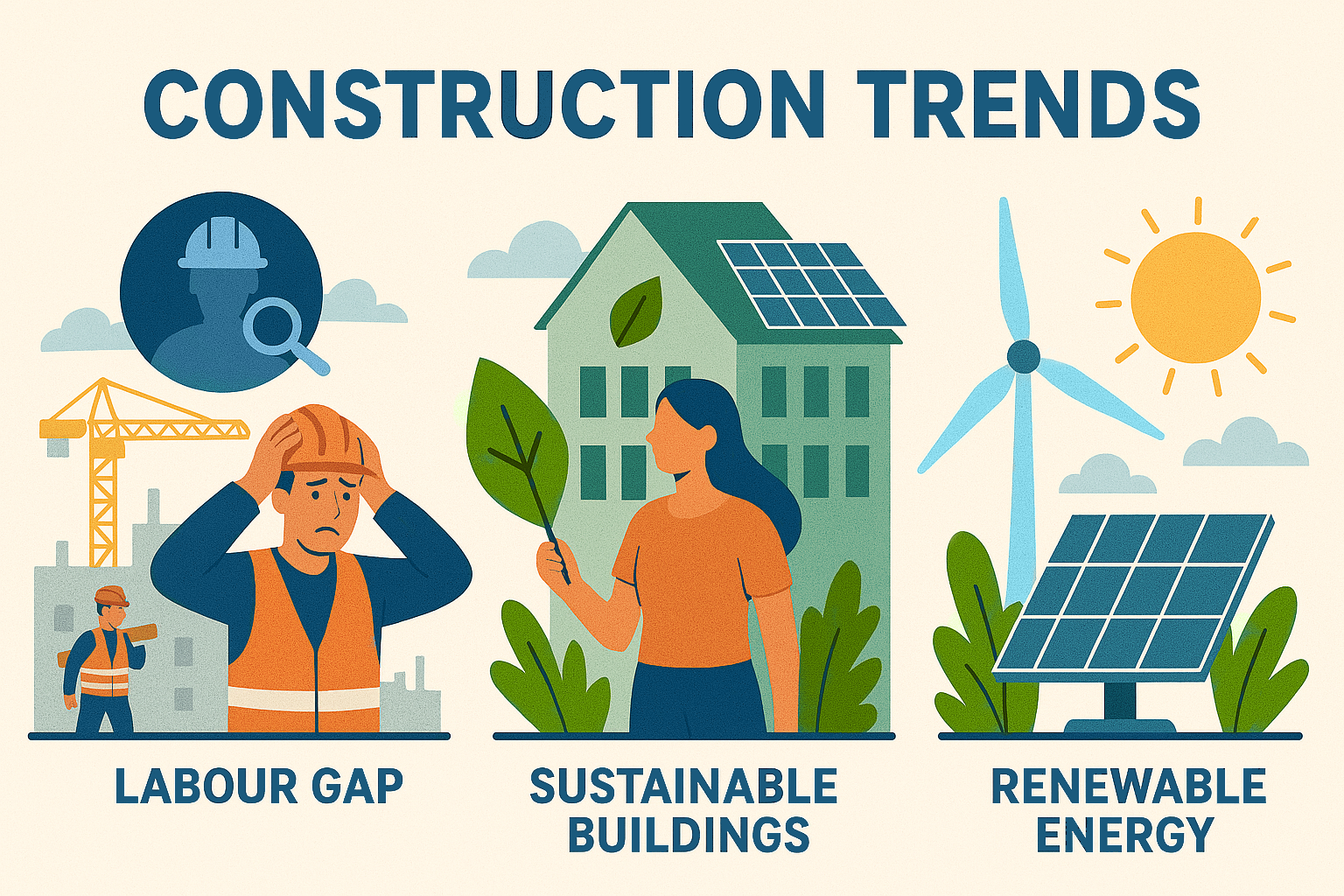Navigating the current trends in South Africa’s construction sector
South Africa’s construction industry is being shaped by evolving challenges and opportunities. Trends such as addressing skilled labour shortages, embracing sustainable building practices, advancing renewable energy projects, and enhancing public infrastructure are defining our path forward.
Bridging the labour gap
The scarcity of skilled labour remains a pressing concern in our sector. While South Africa does not face a general labour shortage, the demand for specialised skills is significant.
Automation and digital workflows are emerging as important tools to bridge this gap, enhancing efficiency and accuracy in construction processes. Additionally, initiatives aimed at attracting younger talent through targeted skill development programs are gaining momentum, ensuring a robust workforce for the future.
Commitment to sustainable building practices
Sustainability has transitioned from a buzzword to a core principle in construction. The escalating costs of energy and evolving environmental regulations have exacerbated the urgency for energy-efficient buildings.
This shift has led to a growing market for designs and products that minimise energy consumption. The adoption of green building technologies not only addresses environmental concerns but also offers economic advantages, including reduced operational costs and enhanced property values.
Accelerating renewable energy projects
South Africa is making significant strides in renewable energy. The government has set ambitious targets, aiming for renewables to constitute 41% of electricity generation by 2030. This commitment is evident in substantial investments and policy reforms designed to facilitate the transition from coal to cleaner energy sources.
For instance, the Renewable Energy Independent Power Producer Procurement Programme (REIPPPP) has been instrumental in driving the development of renewable energy projects across the country. These initiatives not only contribute to environmental sustainability but also open avenues for job creation and technological innovation within the construction sector.
Enhancing public infrastructure through collaboration
Infrastructure development is a cornerstone of economic growth. Recognising this, the South African government has allocated significant funds to boost public-private collaborations in sectors like transportation and utilities.
By easing Public-Private Partnership (PPP) regulations, the government aims to attract substantial investments, thereby accelerating infrastructure projects that are crucial for national development. These collaborations are expected to improve service delivery, create employment opportunities, and stimulate economic activity.
Keep moving forward
The current trends in South Africa’s construction industry underscore a dynamic and evolving landscape. By addressing the skilled labour shortage through technological integration and education, embracing sustainable building practices, advancing renewable energy initiatives, and fostering public-private partnerships for infrastructure development, we are laying the foundation for a resilient and prosperous future.
As industry stakeholders, it is imperative to adapt to these trends proactively. We must ensure that we contribute meaningfully to the nation’s growth and sustainability objectives.


